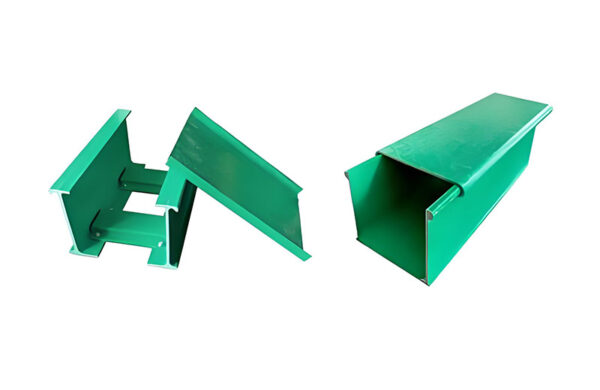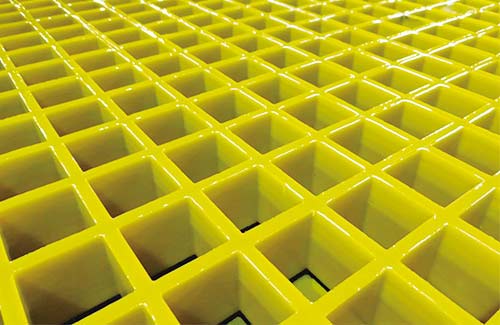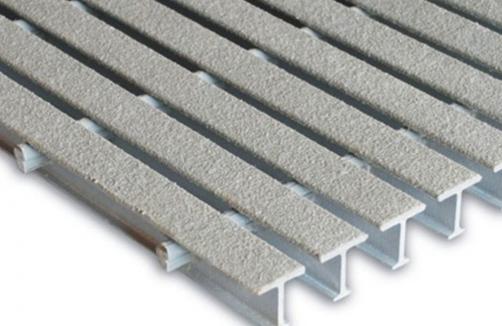FRP Tube for Oil and Gas Industry: The Ideal Solution for Durability and Performance
The oil and gas industry is one of the most demanding sectors when it comes to material performance. Pipelines and tubing must withstand extreme conditions, including high pressure, corrosive environments, and harsh temperatures. Traditional materials like steel have long been the standard, but they come with limitations such as weight, maintenance costs, and susceptibility to corrosion. This is where Fiber Reinforced Polymer (FRP) tubes emerge as a revolutionary solution. But what makes FRP tubes the ideal choice for the oil and gas industry? Let’s explore the key questions and benefits.
What Are FRP Tubes, and How Do They Differ from Traditional Materials?

FRP tubes, also known as fiber-reinforced plastic tubes, are composite materials made from a combination of fibers (typically glass or carbon) and a polymer matrix. This unique composition gives FRP tubes exceptional strength-to-weight ratios, making them lighter than steel but just as durable. Unlike traditional steel tubing, FRP tubes do not rust or corrode, which is a significant advantage in environments exposed to chemicals and moisture.
Why Choose FRP Tubes for Oil and Gas Applications?
The oil and gas industry faces numerous challenges, including the need for materials that can endure extreme pressures and temperatures. FRP tubes offer several advantages over conventional materials:
- Corrosion Resistance: FRP tubes are highly resistant to corrosion, making them ideal for environments where pipelines are exposed to acidic or saline substances.
- Lightweight: Their lightweight nature reduces installation costs and minimizes the load on supporting structures.
- High Strength: Despite being lightweight, FRP tubes possess remarkable strength, capable of withstanding high pressures without deformation.
- Longevity: With a longer service life compared to steel, FRP tubes reduce maintenance and replacement costs.
Addressing Common Questions About FRP Tubes
How Do FRP Tubes Perform Under High Pressure?
One of the primary concerns in the oil and gas industry is the ability of tubing to withstand high pressures. FRP tubes are engineered to meet stringent pressure requirements, ensuring reliable performance in high-stress environments. Their composite structure distributes stress evenly, preventing leaks and bursts that are common with traditional materials.
Are FRP Tubes Environmentally Friendly?
Environmental sustainability is a growing concern in the oil and gas sector. FRP tubes are an eco-friendly alternative to steel because they are recyclable and do not contain hazardous materials. Additionally, their longer lifespan means fewer replacements, reducing waste and resource consumption.
What About Installation and Maintenance?
Installing FRP tubes is relatively straightforward compared to steel pipelines. Their lightweight design allows for easier handling and faster installation, saving time and labor costs. Moreover, FRP tubes require minimal maintenance, as they are not prone to rust or corrosion, further reducing operational expenses.
The Future of Oil and Gas Pipelines
The oil and gas industry is continuously evolving, with a growing emphasis on efficiency, durability, and sustainability. FRP tubes are at the forefront of this evolution, offering a solution that meets the industry’s most demanding requirements. As technology advances, we can expect even more innovative applications of FRP tubes, further solidifying their position as the ideal choice for durability and performance.
Share Your Thoughts
Have you worked with FRP tubes in the oil and gas industry? What are your experiences with their performance and reliability? Share your insights in the comments below. Your feedback helps us understand the real-world benefits of FRP tubes and how they are shaping the future of pipeline solutions.
In conclusion, FRP tubes represent a significant advancement in pipeline technology, providing unparalleled durability and performance in the oil and gas sector. Their resistance to corrosion, lightweight design, and high-strength properties make them a superior alternative to traditional materials. As the industry continues to prioritize efficiency and sustainability, FRP tubes are poised to play a pivotal role in the future of energy infrastructure.







